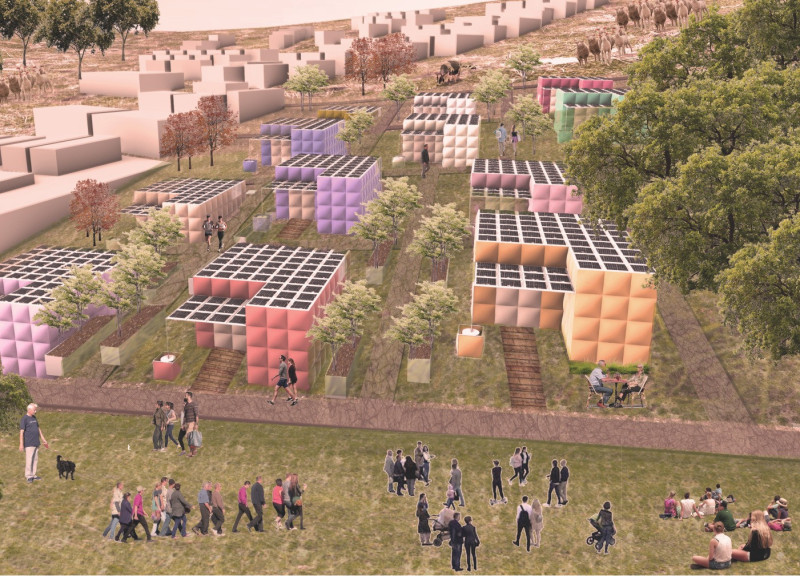5 key facts about this project
Pack It Up is designed to meet the urgent needs of refugees by providing modular micro-homes. These homes respond to the difficult living conditions many displaced people face. With a focus on functionality and community, each unit can be easily set up, taken down, and moved, adapting to various circumstances as needed.
Modular Design
The concept focuses on modular design, allowing every micro-home to stand alone while still encouraging neighborly connections. This flexibility means homes can be arranged in multiple patterns to create a community feel while ensuring each unit maintains its own privacy. The layout includes essential living spaces such as kitchens, bathrooms, work areas, and sleeping rooms that make the most of limited space.
Material Usage
Materials play a key role in the performance of these micro-homes. Using ETFE IR-Foil for inflatable cushions helps control temperature and block excessive sunlight. This creates a more comfortable environment for residents. Moreover, polycarbonate panels provide strength and reduce weight, making the homes easy to transport. Such choices reflect a balance between comfort and practicality.
Sustainability Features
Water management is integral to the design, with tanks for filtered and unfiltered water included in each unit. A recycling system, placed near the kitchen and bathroom, allows for efficient use of water resources. Filtered water can be used for irrigation and planting, which not only meets basic needs but encourages self-reliance. Rooftop solar panels contribute to energy needs, allowing the homes to operate without relying on conventional power sources.
Pack It Up aims to create living environments that not only provide shelter but also foster community connections. Each unit serves as a place for cultural exchange and social interaction, able to evolve with the needs of its residents. The design reflects a thoughtful approach to addressing the challenges faced by those in temporary housing.




















































